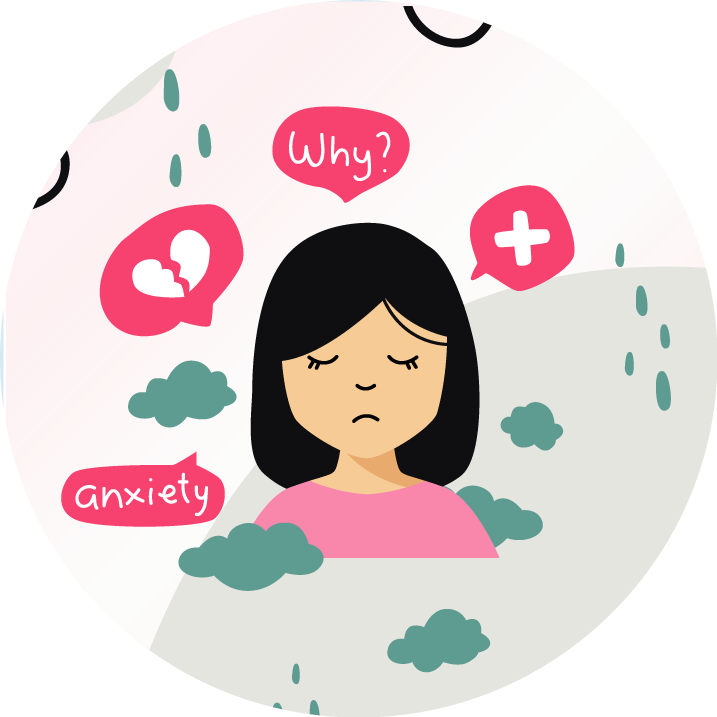Ways to Silence Your Inner Critic That Affects Mental Well-Being

Ways to Silence Your Inner Critic That Affects Mental Well-Being
April 16 2025 TalktoAngel 0 comments 710 Views
The inner critic is that persistent voice inside our heads that judges, doubts, and belittles us. It conveys the message that we are not competent, intelligent, or good enough. While this self-criticism can sometimes push us toward self-improvement, more often than not, it negatively impacts our mental well-being, leading to anxiety, depression, burnout, PTSD, low self-esteem, and even self-sabotage. Learning to silence or manage the inner critic is essential for emotional resilience and mental health. In this blog, we will explore practical and effective ways to quiet your inner critic and cultivate self-compassion.
1. Recognize the Inner Critic
The first step in calming your inner critic is recognizing when it is speaking. Often, this voice operates in the background, influencing our thoughts and actions without our awareness. Pay attention to your inner dialogue and identify when it shifts into self-judgment or negativity. Journaling can be an effective tool to track these thoughts and recognize patterns in your self-talk.
2. Separate Yourself from the Inner Critic
It's important to keep in mind that your inner critic doesn't accurately convey who you are. Naming it is one way to distance yourself from it. Giving it a name, such as "The Perfectionist" or "The Doubter," helps create psychological distance, allowing you to challenge and reframe its messages more effectively.
3. Challenge Negative Thoughts
Once you have identified your inner critic, challenge its validity. Ask yourself:
- Would I say this to a friend?
- What evidence supports or contradicts this thought?
- What perspective on this matter is more compassionate or balanced?
You may change out negative emotions for more realistic and productive ones by challenging them.
4. Practice Self-Compassion
Use language that is affirming and encouraging rather than critical of yourself. If you make a mistake, remind yourself that errors are a natural part of growth and learning. Simple affirmations like “I am doing my best” or “I deserve kindness” can help counteract negative self-talk.
5. Reframe Failure as Growth
The inner critic often becomes loud when we experience failure or setbacks.Instead of viewing failure as a reflection of your worth, reframe it as an opportunity for personal growth. Every obstacle you encounter acts as a starting point for personal development. Ask yourself:
- What can I learn from this experience?
- How can I use this situation to grow?
- What would I do differently next time?
This mindset shift can turn criticism into constructive feedback, helping you build resilience.
6. Limit Exposure to Negative Influences
Sometimes, external factors can fuel our inner critic. Social media, toxic relationships, and unrealistic societal expectations can make us feel inadequate. Follow pages and accounts that promote self-love, self-care, and positivity, and distance yourself from those that make you feel unworthy.
7. Cultivate Positive Self-Talk
It can be very effective to switch out negative self-talk with positive affirmations. Instead of saying, “I am not good enough,” reframe it to “I am capable and learning every day.” Use affirmations that resonate with you, such as:
- “I am worthy of love and success.”
- “I trust myself to make good decisions.”
- “I am enough just as I am.”
- By repeating these affirmations daily, you can alter your thought process.
- Engage in Mindfulness and Meditation
You can become more objectively conscious of your thoughts by engaging in mindfulness exercises. When you notice your inner critic taking over, take a deep breath and observe the thought without attaching yourself to it. Meditation, especially guided self-compassion meditations, can also help you cultivate a kinder relationship with yourself.
8. Seek Support from Others
Fighting your inner critic is not something you have to do alone. Talking to a supportive friend, family member, or the Best Psychologists from TalktoAngel through Online Counselling can provide you with perspective and reassurance. Sometimes, hearing positive feedback from others can counteract self-doubt and remind you of your strengths.
9. Set Realistic Expectations
Perfectionism fuels the inner critic, leading to unnecessary pressure and stress. Appreciate small achievements and allow yourself to make errors. Remember that the most important thing is development, not perfection.
10. Use Visualization Techniques
Visualization can be a powerful way to silence your inner critic. Imagine yourself feeling confident, succeeding, and overcoming obstacles. As your confidence increases, visualize your inner critic as a small, unimportant voice in the distance that gradually disappears. Engaging in these mental exercises regularly can help reshape your self-perception.
11. Engage in Activities that Boost Confidence
Engaging in activities that make you feel competent and accomplished can help drown out your inner critic. Whether it’s learning a new skill, pursuing a hobby, or achieving small personal goals, these experiences can reinforce your self-worth and shift your focus away from self-criticism.
12. Keep a Self-Appreciation Journal
They could be accomplishments, small acts of compassion, or individual qualities. This exercise gradually reduces the effect of negative self-talk and strengthens positive self-perceptions.
13. Accept Imperfection
It can be freeing to accept imperfection as a natural aspect of life.Everyone has imperfections, makes mistakes, and fails. Accepting this reality can help you develop self-compassion and silence unrealistic expectations that fuel your inner critic.
14. Seek Professional Help if Needed
If your inner critic is overwhelming and affecting your mental health, seeking professional support can be incredibly beneficial. A therapist can help you identify the root of self-criticism through therapies like Cognitive-behavioral therapy, DBT, etc and develop personalized strategies to overcome it.
Conclusion
Silencing your inner critic requires effort, perseverance, and self-awareness. By recognizing negative self-talk, challenging its validity, and cultivating self-compassion, you can transform your inner dialogue into one that supports rather than hinders your well-being. Remember, you are not alone in this journey, and with the right strategies, you can develop a healthier and more positive relationship with yourself. Start today—your mental well-being deserves it.
Contributed by: Dr (Prof.) R K Suri, Clinical Psychologist & Life Coach, & Ms. Riya Rathi, Counselling Psychologist
References
- Beck, J. S. (2011). Cognitive behavior therapy: Basics and beyond (2nd ed.). New York, NY: Guilford Press.
- Brown, B. (2012). Daring greatly: How the courage to be vulnerable transforms the way we live, love, parent, and lead. New York, NY: Gotham Books.
- Gilbert, P. (2009). The compassionate mind: A new approach to life’s challenges. New Harbinger Publications.
- Germer, C. K., & Neff, K. D. (2013). Self-compassion in clinical practice. Journal of Clinical Psychology, 69(8), 856–867. https://doi.org/10.1002/jclp.220
Leave a Comment:
Related Post
Categories
Related Quote

“Remember: the time you feel lonely is the time you most need to be by yourself. Life's cruelest irony.” - Douglas Coupland

“Anxiety is a thin stream of fear trickling through the mind. If encouraged, it cuts a channel into which all other thoughts are drained.” - Arthur Somers Roche

“You say you’re ‘depressed’ – all I see is resilience. You are allowed to feel messed up and inside out. It doesn’t mean you’re defective – it just means you’re human.” - David Mitchell, Cloud Atlas

“My anxiety doesn't come from thinking about the future but from wanting to control it.” - Hugh Prather

"Mental health and physical health are one in the same for me - they go hand in hand. If you aren't physically healthy, you won't be mentally healthy either - and vice versa. The mind and body is connected and when one is off, the other suffers as well" - Kelly Gale
Best Therapists In India
























SHARE